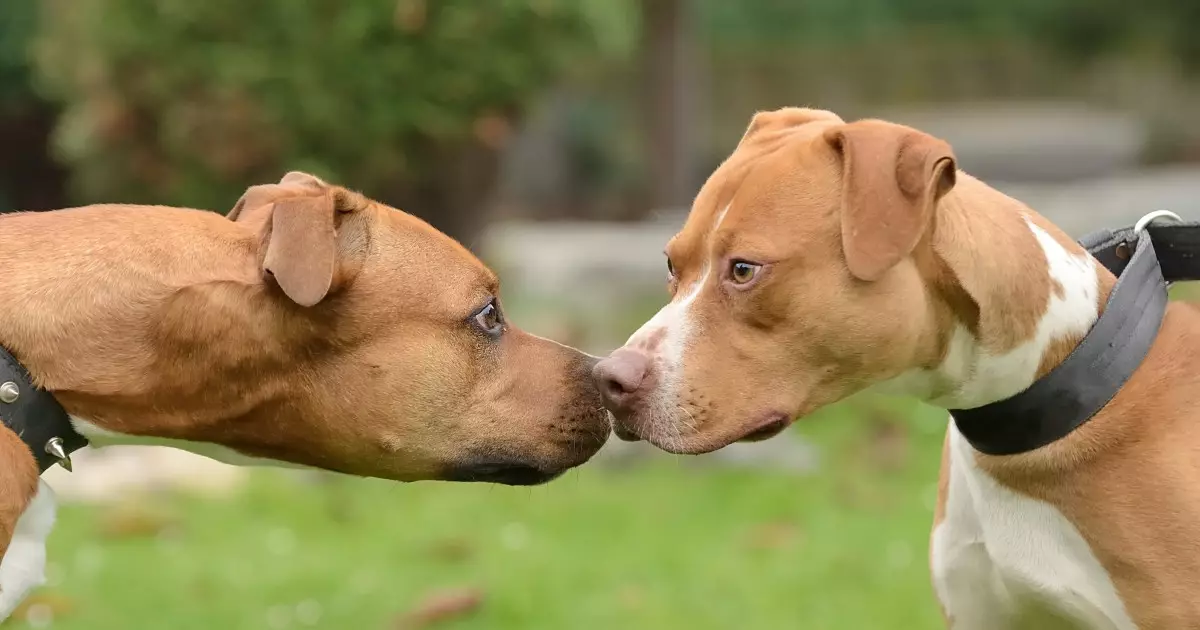Pit Bulls have long been subjected to myths that paint them as inherently aggressive dogs, prompting fear and misunderstandings. At their core, these dogs are not born with a predisposition for aggression toward humans or other animals. Rather, the issues surrounding aggression in Pit Bulls can often be attributed to a variety of environmental and behavioral influences.
Historically, Pit Bulls were bred for bull-baiting and dog fighting, which has contributed to their negative reputation. However, this background should not overshadow their potential for affection and loyalty. In truth, many Pit Bulls exhibit the same love and gentleness as any family dog. The critical issue lies not in their breeding, but in the circumstances that surround each individual dog. It is vital to separate fact from fiction and recognize that aggression is not an intrinsic trait of the breed itself.
To understand aggression in Pit Bulls, one must consider multiple influencing factors:
1. Genetic Predisposition: While genetics can play a role, it is essential to remember that genetics alone do not determine behavior. Just as with people, a dog’s temperament is shaped by a combination of nature and nurture.
2. Early Experiences: The formative experiences of a Pit Bull puppy significantly influence their behavior as adults. Dogs that face abuse or neglect often endorse fear-based behaviors, resulting in aggressiveness due to their learned associations with humans.
3. Socialization: Lack of socialization can lead to fearful or aggressive responses. Dogs that have not been properly introduced to diverse environments and different people may struggle to adapt, leading to anxiety and potential aggression.
4. Living Environment: A chaotic or stressful home can foster aggressive behaviors in dogs feeling the need to defend themselves or their owners. Stability, routine, and a calm atmosphere encourage a sense of security that can mitigate such responses.
These factors collectively illustrate that not every Pit Bull exposed to adverse conditions will become aggressive. Awareness and proactive measures can significantly decrease the potential for aggressive behavior.
Preventing aggressive tendencies is a critical responsibility for every dog owner, especially those who choose to adopt or purchase a Pit Bull. Here are effective strategies to ensure a positive experience for both the dog and the owner:
– Select a Reputable Breeder: Choosing a trustworthy breeder is essential. A responsible breeder prioritizes temperament and screens dogs for aggression, ensuring a healthy lineage.
– Early Socialization: Educating a young Pit Bull through exposure to various environments, people, and other animals helps build confidence and reduce fear responses. Organizing playdates or visits to dog parks can be instrumental.
– Provide Stability: Creating a secure living space, with adequate food, hydration, and exercise contributes to the overall well-being of your Pit Bull. A relaxed and loved dog inherently brings fewer behavioral problems.
– Positive Reinforcement Training: Utilizing reward-based training fosters good behavior by recognizing and reinforcing positive actions rather than punishing negative behavior. This method not only improves obedience but strengthens the bond between the dog and owner.
– Consider Obedience Classes: Enrolling in training classes can enhance your Pit Bull’s social skills and establish a foundation of discipline that can be beneficial in public settings.
– Recognize Body Language: Understanding the subtle signals of canine communication is vital. Being able to identify signs of distress, such as growling or lunging, allows owners to de-escalate potentially aggressive situations before they escalate.
In cases where a Pit Bull does exhibit aggressive tendencies, it is crucial to seek professional assistance from a certified animal behaviorist. With appropriate guidance and training, the potential for love and companionship that exists in Pit Bulls can be fully realized.
Changing the narrative surrounding Pit Bulls requires collective effort from owners and communities alike. Education and responsible ownership are critical to bridging the gap of misunderstanding. Every dog, including Pit Bulls, deserves a chance to thrive in a nurturing environment, free from bias. By focusing on proper upbringing, socialization, and training, we can nurture Pit Bulls into the loving companions they have the potential to be, while challenging outdated stereotypes that continue to persist.


Leave a Reply